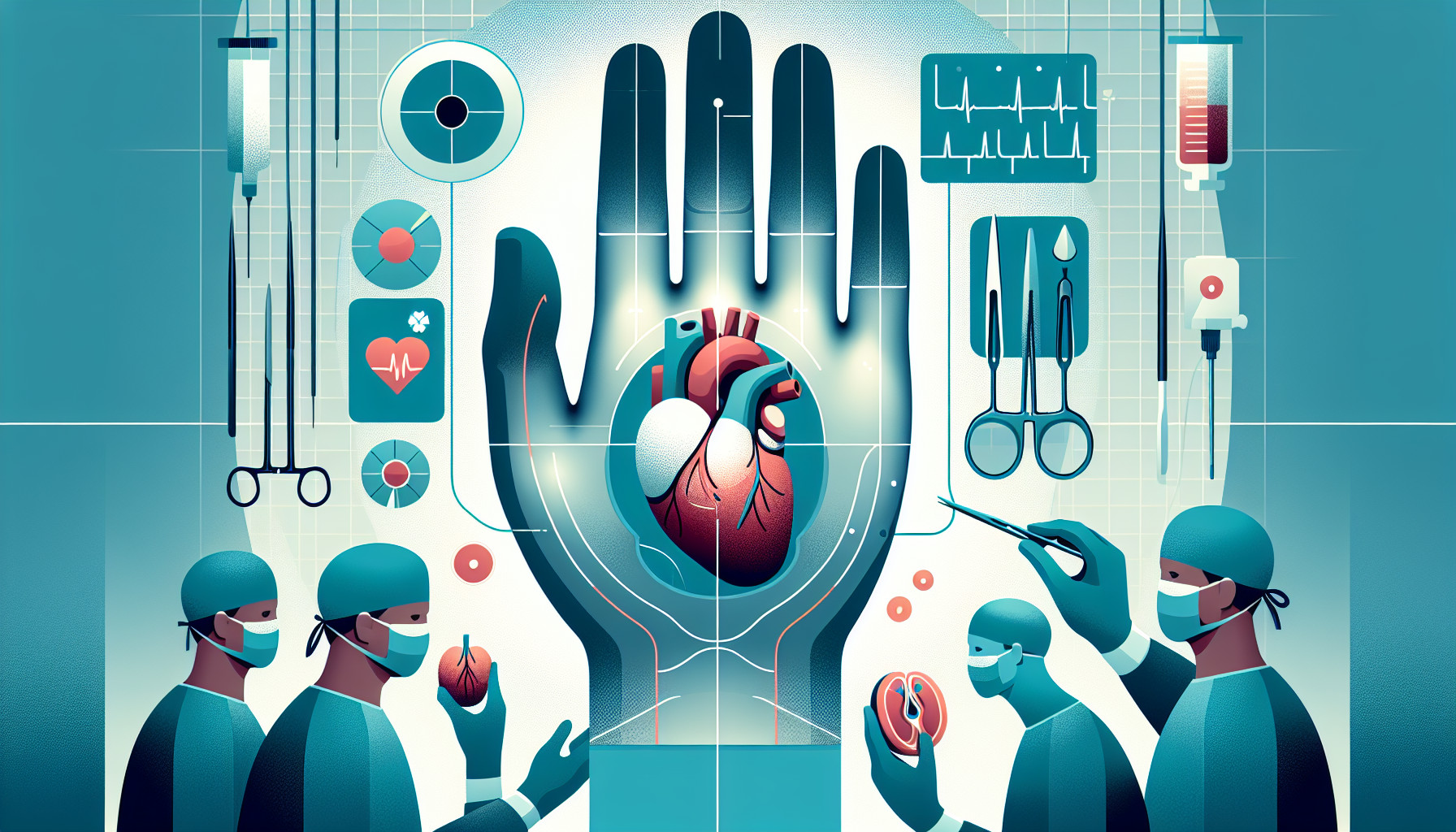Our Summary
This paper is about facial allograft transplantations (FAT), a type of face transplant. Since the first case in France in 2005, more than 35 FATs have been performed globally. These operations have gained massive interest from doctors and the public, proving to be a good solution for reconstructing complex facial defects that can’t be fixed using traditional methods. FATs have pushed the boundaries of reconstructive surgery, immunology, and transplantation. However, they also raise complicated scientific, ethical, and social issues. For instance, patients and doctors must cope with ongoing challenges like managing the body’s immune response to the transplant and the psychological impact. The paper reviews the progress in FAT over the past 12 years and aims to stimulate discussion about current practices and techniques. It also proposes ideas for making FAT a safe, reliable, and accessible standard operation for certain patients in the future.
FAQs
- What is a facial allograft transplantation (FAT)?
- What are some of the ongoing challenges faced by patients and doctors after a FAT?
- How has the progress in FAT over the past 12 years impacted its potential as a standard operation?
Doctor’s Tip
A helpful tip a doctor might tell a patient about hand transplant is to follow a strict regimen of immunosuppressant medications to prevent rejection of the transplanted hand. It is also important to attend regular follow-up appointments with the transplant team to monitor the hand’s function and overall health. Additionally, physical therapy and rehabilitation are crucial for optimizing the function of the transplanted hand and helping the patient adjust to using their new limb.
Suitable For
Patients who are typically recommended for a hand transplant are those who have suffered severe trauma or injury to their hands, resulting in significant loss of function and quality of life. These patients may have tried other treatments and surgeries without success, and a hand transplant may be their best option for regaining function and improving their quality of life.
Candidates for hand transplants are carefully screened to ensure they are in good overall health and have realistic expectations about the surgery and the rehabilitation process. They must also be committed to taking immunosuppressive medications for the rest of their lives to prevent rejection of the transplanted hand.
In general, patients who are recommended for hand transplants are those who have lost one or both hands due to trauma, burns, congenital abnormalities, or diseases such as cancer. They must have sufficient motivation and support to undergo the complex surgery and rehabilitation process, as well as the ability to comply with the long-term medication regimen required to prevent rejection of the transplant.
Timeline
Before hand transplant:
- Patient undergoes extensive evaluation to determine if they are a suitable candidate for a hand transplant.
- Patient undergoes psychological assessment to ensure they are mentally prepared for the procedure.
- Patient is placed on a waiting list for a suitable donor hand.
- Donor hand is found and matched to the patient based on blood type, tissue compatibility, and other factors.
- Hand transplant surgery is performed, which can take several hours to complete.
After hand transplant:
- Patient undergoes intensive physical therapy to regain function and strength in the transplanted hand.
- Patient takes immunosuppressant medications to prevent rejection of the transplanted hand.
- Patient undergoes regular follow-up appointments with their medical team to monitor the hand’s progress and adjust medications as needed.
- Patient may experience psychological challenges, such as adjusting to the new hand and dealing with the emotional impact of the transplant.
- Patient gradually resumes normal activities and functions with their new hand, with the goal of improving quality of life and overall function.
What to Ask Your Doctor
What are the potential risks and complications associated with a hand transplant?
How long is the recovery process and what kind of rehabilitation will be required post-transplant?
What kind of medications will I need to take to prevent rejection of the transplant?
How will the transplant affect my daily life and functionality of my hand?
Are there any long-term effects or considerations I need to be aware of?
How successful have hand transplants been in the past and what is the success rate?
What kind of follow-up care will be required after the transplant?
Are there any alternative treatments or options I should consider before opting for a hand transplant?
How will the transplant affect my overall quality of life and mental well-being?
What kind of support system or resources are available for patients undergoing a hand transplant?
Reference
Authors: Tasigiorgos S, Kollar B, Krezdorn N, Bueno EM, Tullius SG, Pomahac B. Journal: Transpl Int. 2018 Jul;31(7):677-688. doi: 10.1111/tri.13130. Epub 2018 Feb 23. PMID: 29421860
